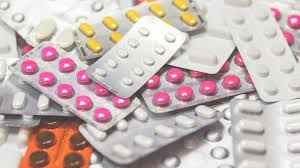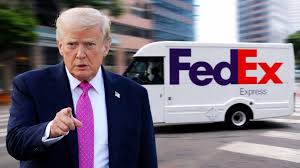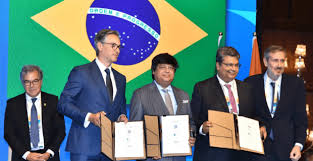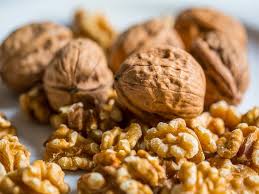India’s $20B generic pharma exports spared, but uncertainty looms over contracts and U.S. policy shifts.
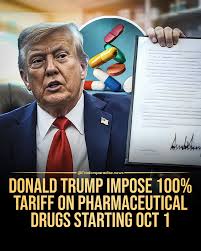
In a bold move targeting the U.S. pharmaceutical sector, President Donald Trump announced a 100% tariff on branded and patented drug imports, effective October 1, 2025, unless companies establish manufacturing plants in the United States. While generic medicines; India’s main export to America, are technically exempt, the decision has triggered caution among Indian pharma companies and industry analysts.
Trump clarified that “IS BUILDING” a plant; meaning construction underway or ground broken, would exempt firms from the tariff. Products from companies already investing in U.S. facilities would not be taxed.
India, the world’s largest supplier of generic medicines to the U.S., ships around $20 billion annually, with Sun Pharma, Dr. Reddy’s Laboratories, Cipla, Lupin, and Aurobindo Pharma among major exporters. Despite the exemption for generics, analysts warn that the tariff could disrupt contract manufacturing for branded drugs and create ambiguity over how U.S. authorities define “branded,” potentially causing customs delays, scrutiny, or added costs.
“The move is less about immediate impact and more about signaling,” said an Indian-American pharma analyst. “America wants its drugs made domestically, and that message is clear.”
While Indian exporters may benefit from short-term demand increases for generics if branded drugs become costlier, the long-term implications of forced U.S. manufacturing investments could raise capital costs, reduce margins, and strain smaller firms.
For American patients, the tariff could threaten affordable access to essential medicines, as Indian generics supply treatments for cancer, infectious diseases, and chronic conditions. Health experts warn of potential short-term price spikes or shortages, even if generics are spared.
The pharmaceutical tariff announcement is part of a broader protectionist push by the Trump administration. Other measures include:
- 50% tariff on kitchen cabinets, bathroom vanities, and related imports.
- 30% tariff on upholstered furniture.
- 25% tariff on imported heavy trucks, benefiting U.S. manufacturers like Peterbilt, Kenworth, Freightliner, and Mack Trucks.
The sweeping measures underscore a strategic shift toward domestic production, signaling potential challenges for global supply chains, including India’s $20 billion generics market.
Source: The Hindu






